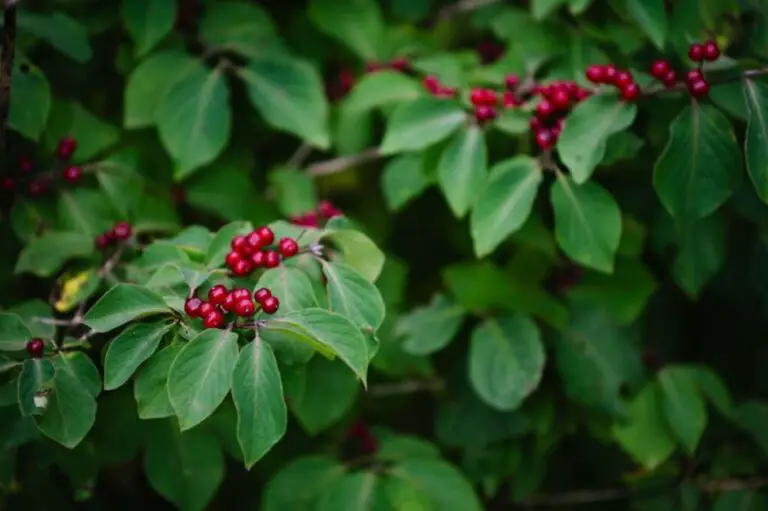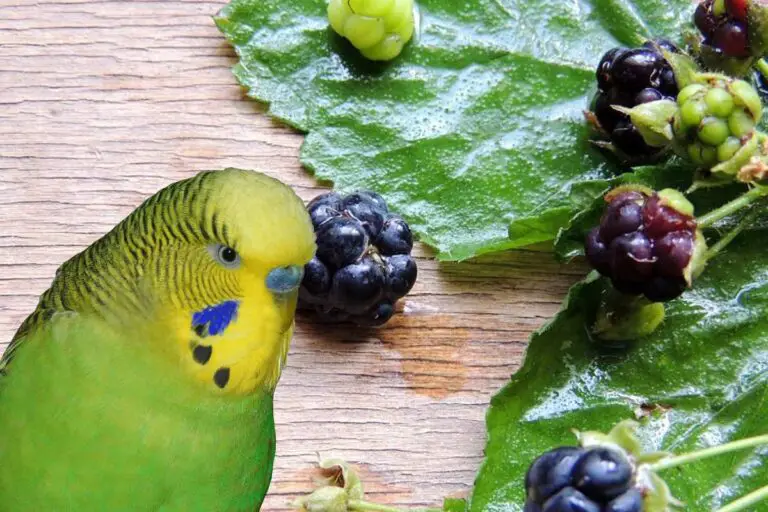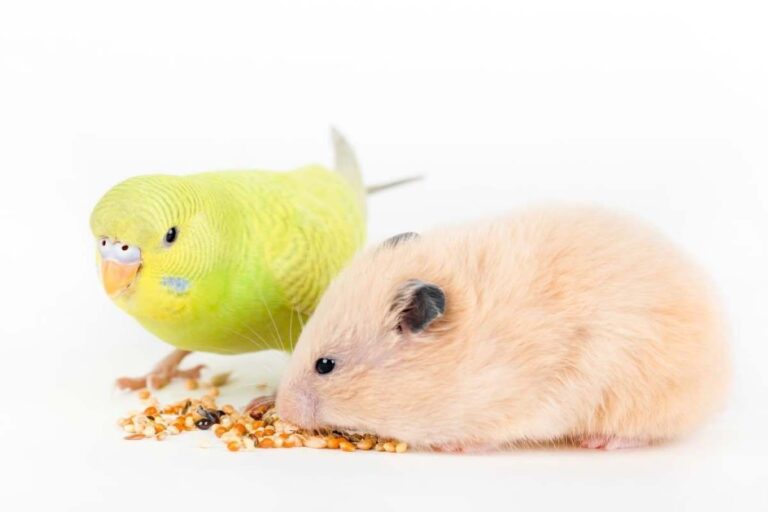Can Parakeets Eat Grapes?

As an avian enthusiast and a proud owner of a charming parakeet, I’ve always been curious about the intricacies of their dietary habits. How can I offer my feathered friend a balanced diet that’s both nutritious and enjoyable? One food item that raised my curiosity was grapes—a juicy, sweet fruit loved by many. This led me to the question, “Can parakeets eat grapes?” Join me as I delve into the fascinating world of avian nutrition, exploring whether these vibrant birds can safely enjoy this popular fruit, and if so, how to serve it to them correctly.
Parakeets and Their Dietary Preferences
The charm of parakeets, also fondly known as budgerigars or ‘budgies’, transcends beyond their social nature and brilliant plumage. These avian companions are unique in their dietary habits, making them an intriguing subject in the realm of pet care.
Parakeets are native to Australia, where the arid landscapes offer a diverse mix of food sources. Their diet in the wild predominantly comprises seeds and grains. The hard seed cases provide the added benefit of keeping their beaks sharp and well-trimmed.
However, seeds and grains are not the sole constituents of their diet. Budgies are known to supplement their food intake with a variety of fruits and vegetables, which are rich in the vitamins and minerals not abundantly available in their primary food sources. During certain seasons, they may also indulge in the occasional insect, rounding off a diverse palette of dietary preferences.
When parakeets are kept as pets, it’s essential to mimic this dietary diversity as closely as possible. While pet stores offer prepackaged birdseed mixes for parakeets, these alone can’t provide all the necessary nutrients. That’s where the importance of knowing what fruits and vegetables are safe for parakeets, like grapes, comes into play.
It’s also worth noting that different parakeets may have individual food preferences. Some may take readily to trying new foods, while others might be more hesitant. Therefore, patience and gradual introduction of new foods, such as grapes, are key to successful dietary diversification.
Read also: How to Teach Your Budgie to Talk
Grapes: A Nutritional Overview
Grapes, available in a range of colors and flavors, are known for more than just their sweet, tangy taste. They offer a host of nutritional benefits that make them a popular choice in many diets, but are they suitable and beneficial in a parakeet’s diet?
Nutritional Composition of Grapes
Grapes are a nutritional powerhouse, containing an impressive variety of vitamins and minerals. Some key nutrients include:
- Vitamin C: This essential vitamin plays a significant role in immune function, wound healing, and the maintenance of cartilage, bones, and teeth.
- Vitamin K: Critical for blood clotting and regulating blood calcium levels, Vitamin K is another nutrient abundant in grapes.
- Antioxidants: Grapes, especially dark-colored ones, are rich in antioxidants, including flavonoids and resveratrol, which combat oxidative stress and inflammation.
- Water and Fiber: Grapes have high water content, aiding in hydration. They also provide dietary fiber, promoting gut health.
The question “Can parakeets eat grapes?” arises from the potential these nutrients have to supplement a parakeet’s diet.
It’s important to note that while grapes are a source of nutrition, they are also high in natural sugars. In moderation, these sugars can provide a quick energy boost. However, they can contribute to obesity and related health problems if grapes are overfed.
Introducing grapes into your parakeet’s diet should be done gradually, watching for any signs of discomfort or changes in behavior. Also, the size of the grapes should be considered. Grapes should be cut into small, manageable pieces that are easy for the parakeet to consume. This reduces the risk of choking and makes it easier for the bird to digest the fruit.
Read also: Can Parakeets Eat Strawberries?
Can Parakeets Eat Grapes?
The question “Can parakeets eat grapes?” is one that bird enthusiasts and pet owners often ask, especially those keen on offering their feathery friends a varied and nutritious diet. The simple answer is: Yes, parakeets can eat grapes. However, it’s essential to understand the nutritional benefits as well as the potential risks that come with feeding grapes to these avian pets.

Benefits of Feeding Grapes to Parakeets
Adding grapes to your parakeet’s diet can provide a variety of health benefits.
- Hydration: Due to their high water content, grapes can help keep your parakeet hydrated, particularly in warmer climates or seasons.
- Vitamin Intake: Grapes are a rich source of essential vitamins, like vitamin C and vitamin K, that support the overall health and well-being of your parakeet. Vitamin C helps bolster the immune system, while vitamin K is necessary for blood clotting and bone health.
- Antioxidant Power: The antioxidants in grapes, such as flavonoids and resveratrol, can help fight off harmful free radicals in your parakeet’s body, thereby reducing oxidative stress and potential damage to cells.
- Energy Boost: The natural sugars in grapes can provide a quick energy boost, although this should be monitored due to the potential for overconsumption.
Risks of Feeding Grapes to Parakeets
While grapes offer significant benefits, they also pose potential risks if not properly managed in your parakeet’s diet.
- High Sugar Content: Overconsumption of grapes can lead to obesity and other health complications due to their high sugar content. Grapes should be a treat, not a primary food source.
- Pesticides and Chemicals: Unless they’re organic, grapes often have pesticide residues that can be harmful to your parakeet. Always wash grapes thoroughly before feeding them to your bird.
Read also: How Much Does a Parakeet Cost at Petco in 2023
How to Feed Grapes to Parakeets
Feeding grapes to parakeets involves more than just handing over the fruit to your feathered friend. The process must be carried out thoughtfully, considering the health and safety of your bird. Below is a step-by-step guide on how to feed grapes to your parakeet.
1. Choose the Right Grapes
When selecting grapes for your parakeet, the best choice is seedless grapes. Grape seeds can pose a potential choking hazard for your bird and are more difficult for them to digest. Also, ensure the grapes are ripe and fresh to maximize the nutritional benefits they offer.
2. Wash Thoroughly
Before feeding the grapes to your parakeet, thoroughly wash them under running water. This is necessary to remove any pesticide residues or other contaminants from the grape’s surface. Opting for organic grapes can minimize exposure to harmful chemicals.
3. Cut into Appropriate Sizes
A whole grape is too large for a parakeet to consume safely. It’s best to cut the grapes into small, bite-sized pieces that are easy for the bird to handle and eat. This reduces the risk of choking and makes the grape more manageable for the parakeet.
4. Introduce Gradually
Even though parakeets can eat grapes, it’s best to introduce this new food gradually. Start with a small piece and observe how your bird reacts. Some birds might be hesitant at first, but don’t be discouraged. It might take a few attempts before your parakeet decides to try this new treat.
5. Monitor Your Parakeet
After feeding grapes to your parakeet, it’s crucial to monitor them for any signs of distress or discomfort. If your bird seems to enjoy the grapes and shows no adverse reactions, it’s safe to continue feeding grapes as a part of their varied diet. Remember to serve them in moderation to prevent health issues related to overconsumption of sugar.
Read also: Can Parakeets Eat Bananas? Your Guide to Parakeet Nutrition
Final Thoughts
To sum it all up, parakeets can indeed eat grapes. When incorporated wisely into a parakeet’s diet, grapes can offer a range of health benefits due to their rich nutritional content. They provide essential vitamins, antioxidants, and hydration, along with a sweet treat that many parakeets enjoy.
However, as is often the case, moderation is key. Due to their high sugar content, grapes should be served as a treat, not a staple in your parakeet’s diet. Overfeeding grapes can lead to health issues like obesity and related complications.
Moreover, careful preparation is crucial. Always opt for seedless grapes, wash them thoroughly to remove potential pesticides, and cut them into small, manageable pieces to reduce choking hazards.
Monitoring your bird’s reaction to grapes and any subsequent changes in their health or behavior is equally important. Each parakeet is unique, and what works for one might not work for another. With patience and careful observation, you can determine what dietary choices are best for your feathered friend.
The journey into avian nutrition doesn’t stop here. There’s always more to learn and discover about these fascinating creatures and their dietary needs. By asking questions like ‘Can parakeets eat grapes?’ and conducting careful research, you can ensure you’re providing the best care possible for your parakeet.
Remember, a healthy bird is a happy bird, and that’s the ultimate goal for any pet owner.
Frequently Asked Questions
1. Can parakeets eat grapes?
Yes, parakeets can safely eat grapes. They provide valuable nutrients but should be offered in moderation due to their high sugar content.
2. How should I prepare grapes for my parakeet?
Wash grapes thoroughly, opt for seedless varieties, and cut them into small, bite-sized pieces suitable for your parakeet.
3. How often can I feed grapes to my parakeet?
Grapes should be given as a treat, not a staple food. Offering grapes a couple of times a week in small quantities is generally considered safe.
4. Can grapes cause health issues in parakeets?
Yes, if overfed. Grapes are high in sugar, and overconsumption can lead to obesity and related health issues in parakeets.
5. What are the benefits of feeding grapes to parakeets?
Grapes provide essential vitamins, antioxidants, and hydration. They can support overall health and well-being when fed in moderation.

Martin Cooper
Hello and welcome! I’m an avid bird enthusiast, dedicated to observing, understanding, and documenting our feathery friends. I hope my passion and knowledge inspires your own avian admiration! Join me as we soar into this fascinating world.






